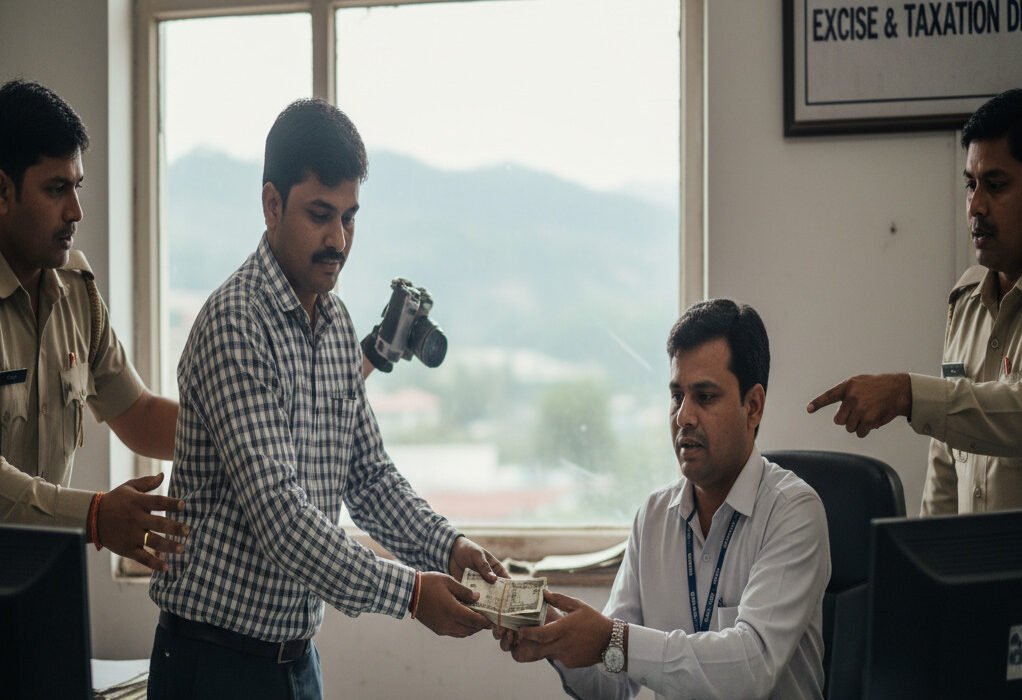In Una district of Himachal Pradesh, the Vigilance and Anti-Corruption Bureau arrested a GST inspector red-handed accepting ₹50,000 in bribe from a local trader, officials confirmed. The arrest followed a complaint from the trader, alleging the inspector initially demanded ₹1,25,000 to settle a revenue-related matter but later agreed to a lesser amount.
The accused was identified as Anshul Dhiman, a resident of the village Dadh (Palampur), working under the Excise wing, and the arrest occurred after vigilance officials laid a trap.
From Demand to Trap: How the Case Unfolded
According to Bureau sources, the trader approached the vigilance cell with a recorded complaint naming the inspector and stating that the transaction was part of an extortion scheme. Pursuant to that, a sting operation was planned, and Dhiman was apprehended during the handover of the ₹50,000.
FCRF Launches CCLP Program to Train India’s Next Generation of Cyber Law Practitioners
Vigilance officials said the original demand of ₹1.25 lakh was “negotiated down” by the inspector, though the Bureau did not disclose whether that was his doing or the complainant’s strategy. The operation was described by officials as “clean and controlled,” with minimal collateral exposure.
Local Reactions and Institutional Pressure
In Una, the news of the arrest has stirred unease among business circles, many of whom now wonder whether such demands are common among revenue officials. Traders and small entrepreneurs expressed frustration, citing opaque tax practices and arbitrary “settlements” as recurring grievances.
Meanwhile, in administrative corridors, the incident is viewed as a test for Himachal’s vigilance mechanisms. Some senior officials argue that unless regular audits and enforcement follow, a lone sting will have limited deterrent value. Others note that such arrests tend to become headlines — but rarely translate to systemic reform.
Broader Implications: Accountability and Governance
This case is more than a localized corruption scandal; it underscores tension between the state tax machinery and the public. Arresting an inspector underlines the vulnerability of revenue enforcement to misuse and raises questions about oversight, personnel vetting and internal checks.
Yet effective governance would demand that the vigilance arm not be seen as reactive only — consistent monitoring, rotation of officials, transparent complaint redressal, and guaranteed protection for whistleblowers must follow. For the trader in Una, justice may lie not only in prosecuting Anshul Dhiman, but in ensuring no future inspector thinks such a demand is viable.



